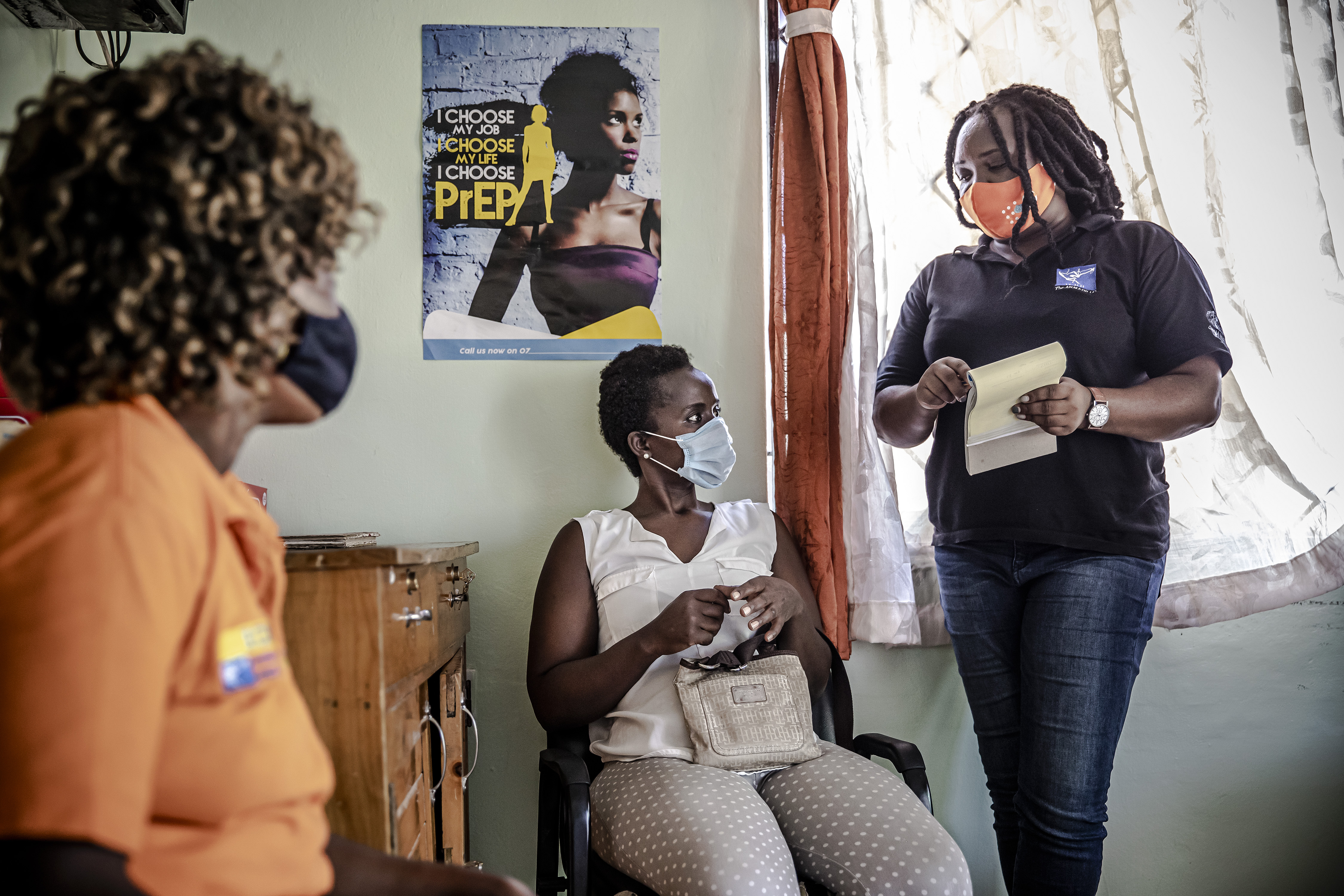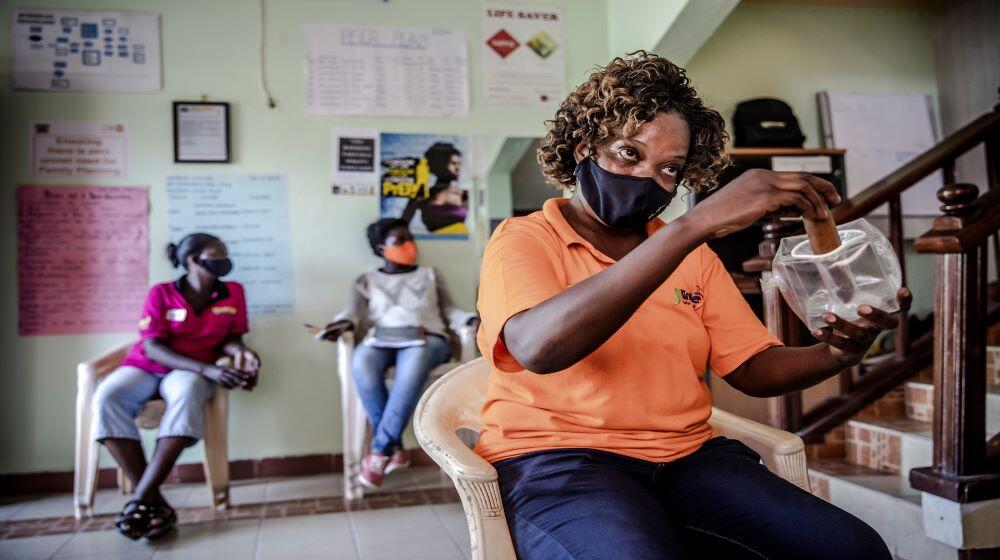Lured by the promise of work in Kilifi County’s booming tourism industry, 22-year-old Selina* left her upcountry home of Kisii for the coastal county, where she found work as a waitress at a top nightclub in Kilifi Town. “When Covid-19 hit, the tourists disappeared and the nightclub was struggling to pay our salaries,” she says. Selina lost her job soon after and has been engaged in sex work for the last year. After expressing her fear of contracting diseases or getting pregnant, her friend and fellow sex worker introduced her to the Mtwapa Drop-In Center, a safe space established for female sex workers in Kilifi.
Run by the International Centre for Reproductive Health -Kenya (ICRHK) with support from UNFPA, the center is one of two such spaces that serve more than 3,800 sex workers in Kilifi North and Mtwapa sub-counties.“Female sex workers are a vulnerable population ás they face many barriers in accessing health care. There is a lot of stigma and discrimination even in public health facilities due to the illegal nature of their work,” says ICRHK HIV/AIDS thematic lead, Dr. Sharon Omenda.

ICRHK provides support aimed at improving access to sexual and reproductive health services to female sex workers, including family planning. The organization also conducts outreach events in hotspots such as bars, lodges, brothels, as well as beach and street areas. “We use family planning sensitization as an entry point to provide a range of integrated services such as cervical cancer screening and testing for HIV and other sexually transmitted infections,” says Dr. Omenda.
The drop-in centers offer a wide variety of contraception methods including oral contraceptive pills, injectables, and condoms. Sex workers also receive family planning counseling and information on good practices such as negotiating condom use with clients, correct and consistent use of contraception, and the benefits of preventing unintended or unwanted pregnancy.
Female sex workers are a vulnerable population ás they face many barriers in accessing health care. There is a lot of stigma and discrimination even in public health facilities due to the illegal nature of their work
Improving access to family planning for sex workers has multiple health and socio-economic benefits, as explained by Dorah Kobags, a clinician at the Mtwapa Drop-in Centre. “Contraceptives are especially important for those involved in sex work in helping prevent unintended pregnancy and the health risks from unsafe abortions,” she says. “Multiple unplanned births coupled with the burden of sex work, can really be daunting on women’s health,” adds Kobags.
Selina is the mother of a three-year-old child, and she plans to have more in the future. “I am still young and when I find a life partner I would like to have two more kids,” she says. For now, she continues to visit the drop-in center for a regular supply of condoms and oral contraceptive pills, which are her method of choice. “Sex workers also want to be mothers, but we want our choices to be respected and the opportunity to plan our families. I like coming to the center because it’s a judgment-free zone where I can get support.”
Clinicians at the Mtwapa and Kilifi North drop-in centers report that injectable contraceptives such as Depo Provera and implants are the most popular methods amongst the women. "By providing female sex workers with the means to plan their families, we empower them to engage and make meaningful contributions in the community", says UNFPA Programme Analyst Lilian Langat.
*Name has been changed to maintain confidentiality.


